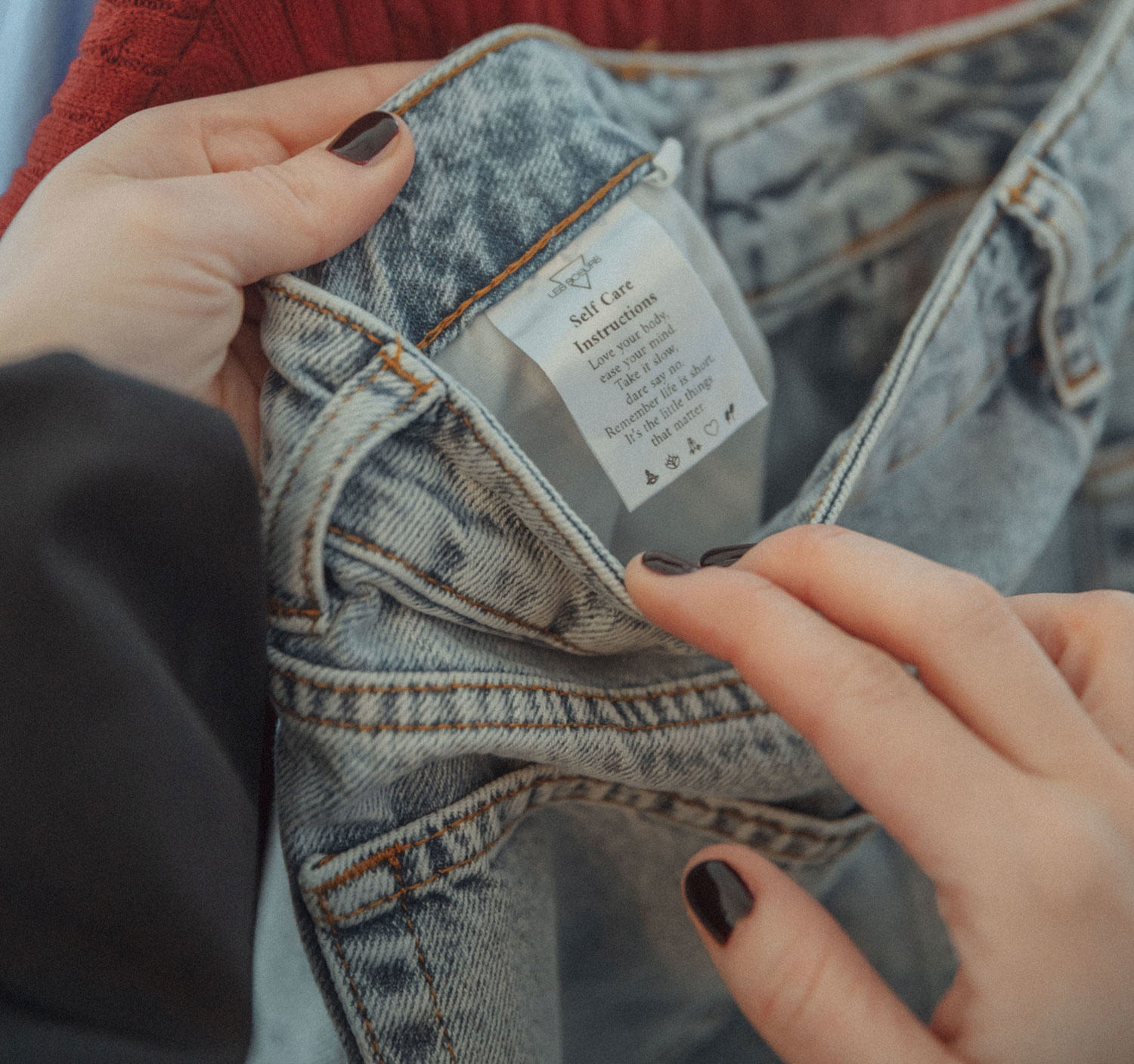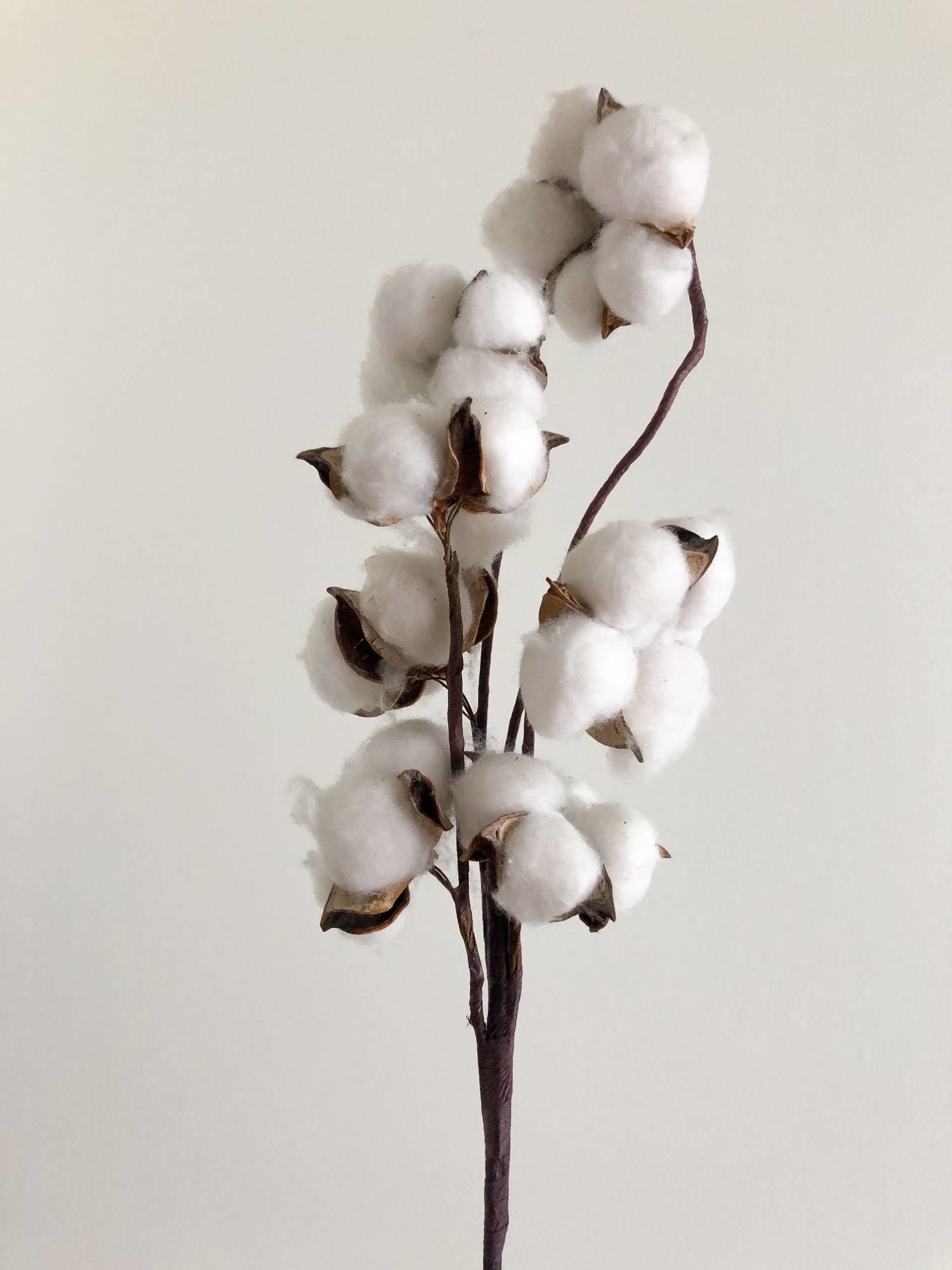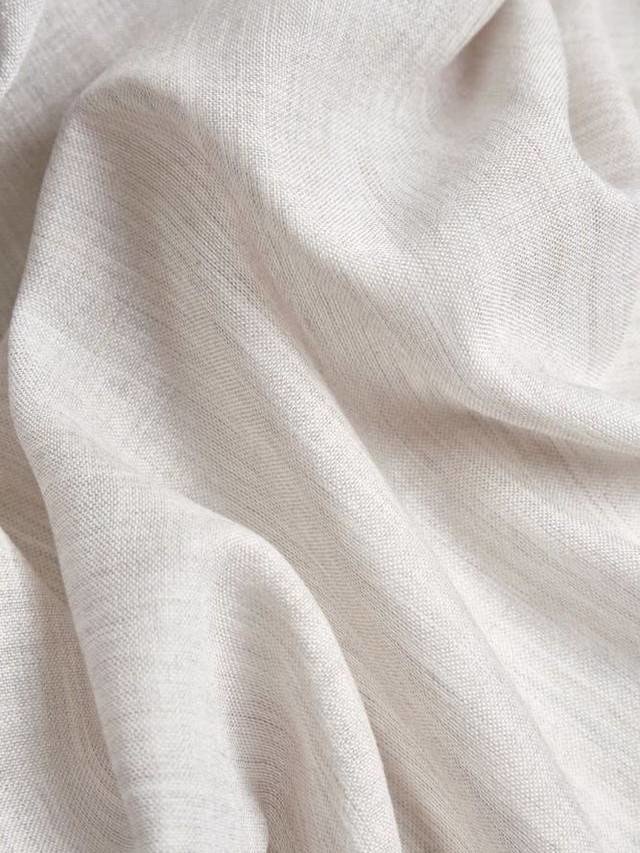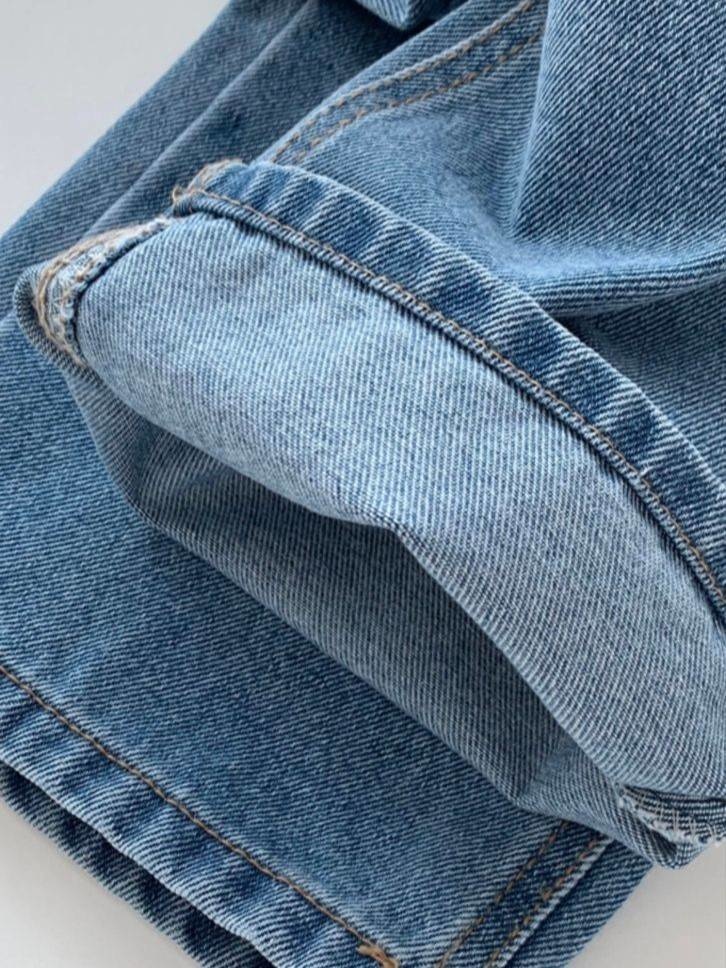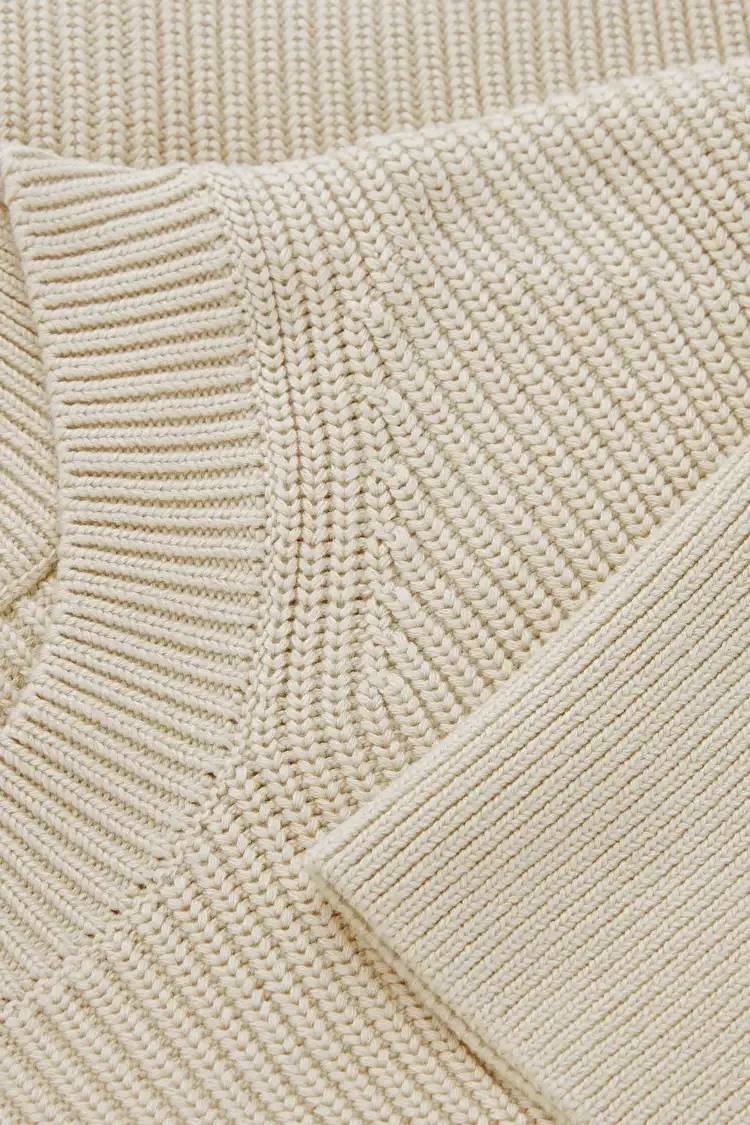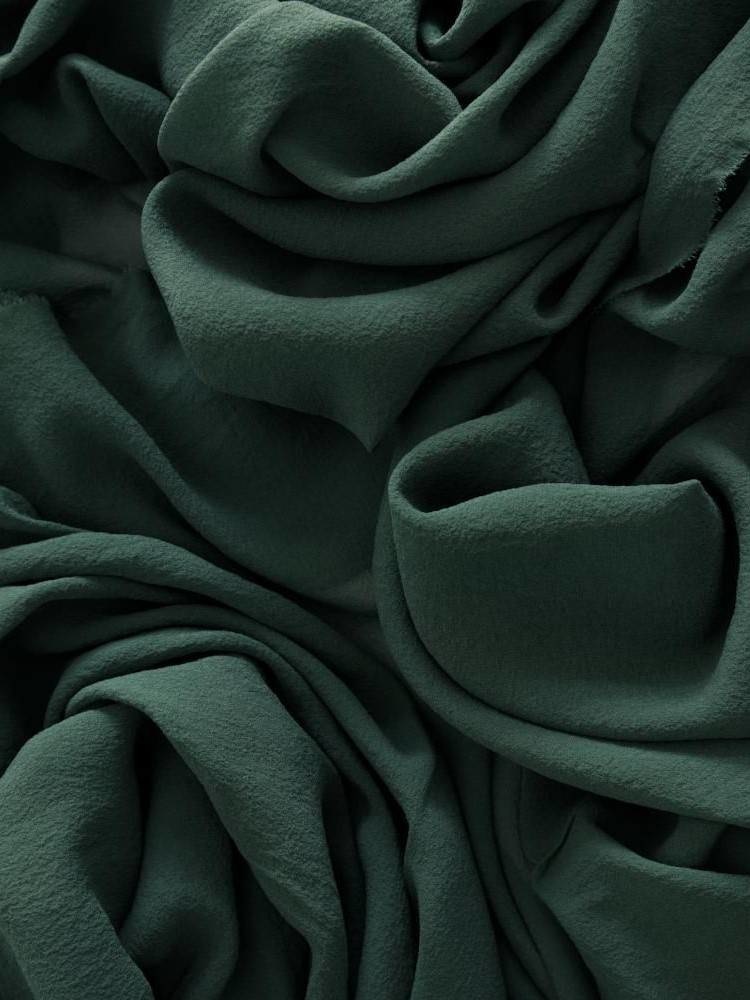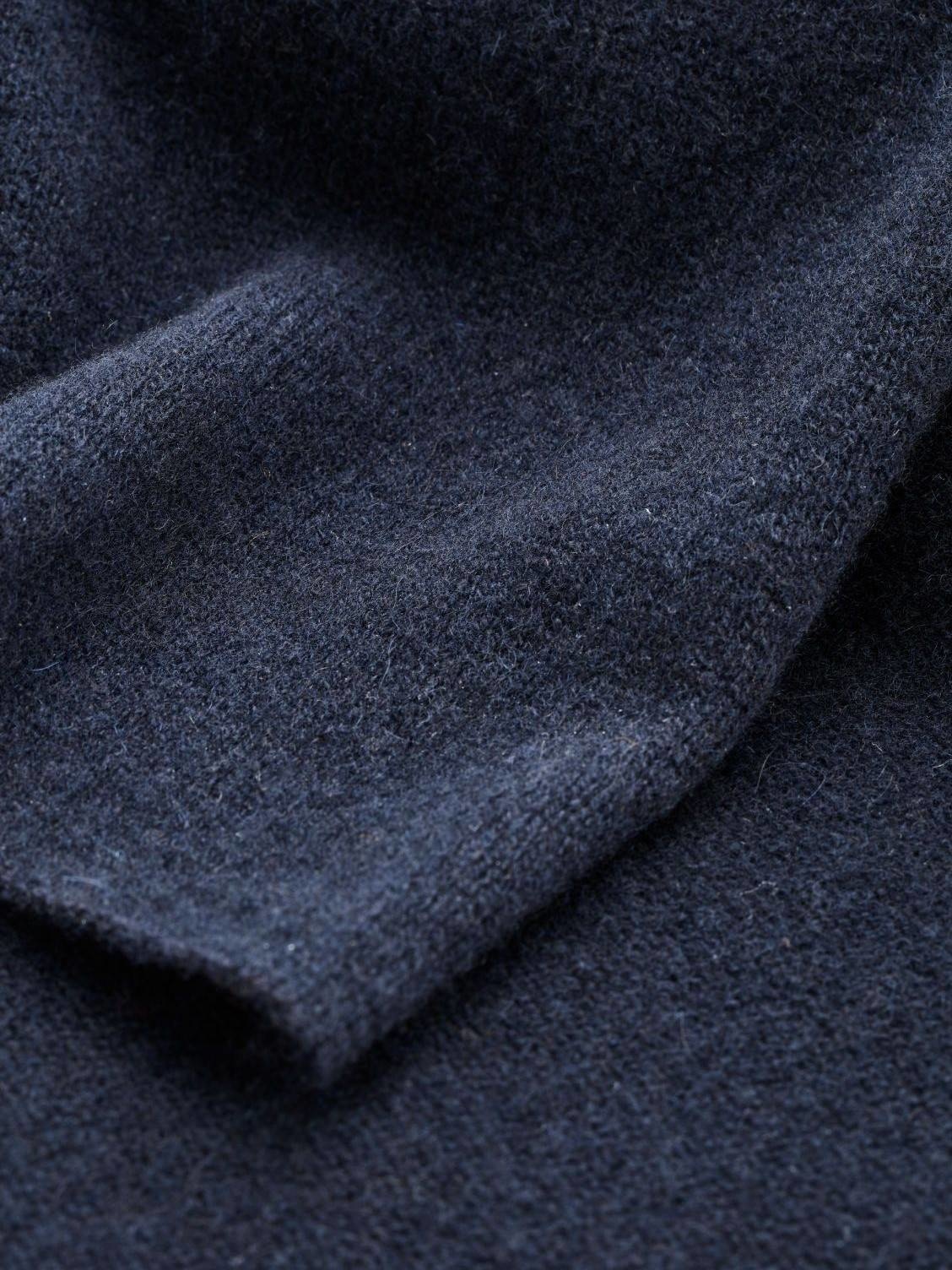Design philosophy clothing
Les Soeurs' mission is to rethink the way we produce and consume fashion. From reducing our impact on the environment to supporting human rights and animal welfare. We care and believe we can help make a difference.
We believe in using the right materials.
In materials that reduce waste, emissions and water consumption. In materials that respect animals, farmers and their land. We do not work with fur, angora wool or down.
We believe clothes should have a long lifespan.
In testing and designing clothes that last. By helping consumers take proper care of their clothes.
We believe in circularity.
In designs that take into account recycling and a second lease of life for used clothing. In restorative ways of designing that supports a circular economy.
MATERIALS & CARE
Committed to the way we produce and consume fashion, Les Soeurs continues to invest in the quality and lifespan of our items. But even the most durable yarns require proper care. Besides, if you care for your clothes in the right way, you significantly extend their lifespan and make sure they look and feel their best.
Our clothing care guide provides useful advice on how to wash, dry and store your clothes for long-term enjoyment. To take proper care of your clothes and wear them for several seasons, we recommend you follow the care instructions on the clothing label and read the following information.
GENERAL CARE GUIDELINES
Don’t wash them too often.
Think twice before washing to avoid wasting water and energy. Some garments, such as a wool jumper or trousers, should not be washed that often. Instead, try hanging them in the fresh air and removing localised stains by hand. Airing them and letting them dry on the washing line will make them smell and feel fresh. Note: If you hang your clothes outside to dry, don't hang them in direct sunlight. After all, sunlight can cause the colour of the fabric to fade.
Lower the temperature.
Wash less often to avoid wasting water and energy - and at lower temperatures. Use a modest amount of ecological washing powder or detergent.
Repair your clothes.
Fabric gets thinner and seams may come undone, but paying a little extra attention to wearing and looking after your wardrobe will extend its life considerably. We recommend trying to repair your clothes before replacing them. You can also have them repaired by a professional tailor or seamstress.
FABRIC-SPECIFIC CARE GUIDELINES
COTTON
The most widely used textile fibre in the world. Airy. Comfortable. Soft.
Wash cold (30°C or lower).
When washing cotton garments with delicate details or embroidery, it's best to use a laundry bag to avoid anything getting stuck during the washing machine’s cycle.
Dry outdoors.
To extend its lifespan and avoid shrinkage, it’s best to let your freshly washed linen or cotton garments dry outdoors.
LINEN
A natural fibre and one of the most popular fabrics. Light. Airy. Dries quickly.
Wash as little as possible.
Linen should not be washed after each time it’s worn. Instead, let it air and remove any localised stains by hand.
Wash cold (30°C or lower).
Use a wash cycle with a low RPM speed. Higher temperatures can cause the fibres to wear. Ideally, hand-wash in lukewarm water.
Dry outdoors.
To extend its lifespan and avoid shrinkage, it’s best to let your freshly washed linen or cotton garments dry outdoors.
Steam to reduce creases.
Hang your linen clothes in the bathroom while you take a hot shower. The steam will reduce creases in the fabric.
DENIM
A naturally strong fabric. Wear-resistant. Casual. Versatile.
Don’t wash too often.
Jeans only need washing a few times a year. In general, airing them and removing localised stains will be sufficient to refresh your denim.
Hand-wash inside out.
Reduce wear and tear by using a more gentle washing process. Avoid scrubbing and rubbing. Simply soak for 30 minutes in water at 40°C and rinse in water at a moderate temperature.
Use mild ecolabel detergents.
A mild detergent helps preserve colour and prevent fading. Use a small amount. Always opt for an ecolabel.
Dry outdoors.
To promote a longer lifespan and avoid shrinkage, it is best to hang up freshly laundered denim to dry.
WOOL
Fine natural fibre derived from animal fur. Heat regulating. Airy. Soft.
Wash as little as possible.
Wool should not be washed after each time it’s worn. Instead, let it air and remove any localised stains by hand.
Hand-wash.
Use an ecological detergent for wool. Avoid scrubbing and rubbing. Gently squeeze out excess water before allowing to dry. If you use your washing machine, always wash on a wool programme.
Dry outdoors.
Do not tumble-dry: friction and movement can damage the fibres and shrink your garment.
Remove pilling.
Wool is a soft, natural material. For this reason, regular use can cause pilling. To remove the pilling (small balls of fluff that form on the fabric’s surface), you can gently brush your garment with a wool brush or use an electric pilling remover.
Store folded flat in your wardrobe.
Avoid hanging up knitwear. The weight of the wool will stretch the garment, causing it to lose its shape. Always store a woollen garment folded flat in your wardrobe to keep the shape intact.
VISCOSE
Natural plant fibre obtained from wood pulp. Light. Airy. Soft. Drapes elegantly.
Don’t wash too often.
Garments made of viscose do not need washing after each time they’re worn. Allow them to air in the fresh air and remove localised stains instead.
Wash cold.
Use a delicate wash cycle with a low RPM speed. Higher temperatures can cause the fibres to wear. Ideally, hand-wash in cold water. When washing viscose garments with delicate details or embroidery, it's best to use a laundry bag to avoid anything getting stuck during the washing machine’s cycle.
Dry outdoors.
To extend their lifespan and avoid shrinkage, it is best to let your freshly washed viscose garments dry outdoors.
Steam to reduce creases.
Hang your viscose clothes in the bathroom while you take a hot shower. The steam will reduce creases in the fabric.
MERINO
Fine natural fibre derived from animal fur. Heat regulating. Lightweight. Soft.
Don’t wash too often.
Merino wool is naturally odour-resistant and does not need to be washed after each time it is worn. Instead, air it and treat localised stains by hand.
Hand-wash.
Wash carefully by hand and lay flat to dry. If you do use the washing machine to wash your woollen garments, always use a low RPM speed wool cycle along with an ecological wool detergent.
Dry outdoors.
Do not tumble-dry. Friction and movement can damage the fibres and shrink your garment. Instead, dry your woollen garments laid out flat on a towel to maintain their shape.
Remove pilling.
Merino wool is a soft and natural material. For this reason, regular use can cause pilling. To remove the pilling (small balls of fluff that form on the fabric’s surface), you can gently brush your garment with a wool brush or use an electric pilling remover.
Store folded flat in your wardrobe.
Avoid hanging up knitwear. The weight of the wool will stretch the garment, causing it to lose its shape. Always store a woollen garment folded flat in your wardrobe to keep the shape intact.







